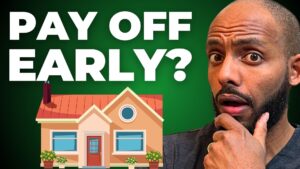We started tracking our net worth in December 2017 and haven’t looked back since. Having a net worth tracker in addition to having a budget has helped us take financial control of our lives. Find out how you can get started tracking your net worth and 10x your chances of achieving financial independence.
Listen on iTunes.
Listen on Google.
Listen on Stitcher.
In all my years of working and since the age of 22, I never tracked my net worth. I really didn’t think to and even know how to really.
As I got deeper into the financial independence community I realized how important tracking your net worth really is. When you track your net worth and budget you’ve just 10x’ed the chances of you achieving financial freedom. Yes, by that much.
I don’t think most of us realize how important tracking our net worth is until later in life.
Pay attention to what I’m about to say: How much you make isn’t as important as how much your net worth is.
Think about that for a second. Let’s say you have two individuals, same age 30 who make different incomes. We’ll call these fictional characters Frank, earns a six-figure salary $100,000/year and the second person Mike earns half of that $50,000/year.
Well, Frank with his six-figure salary never saves, continues to add debt, finances 2 brand new luxury car, gets a mortgage without 20% down, signs up for multiple credit cards and over time increases his debt owed or what are called liabilities. Doesn’t really save or invest. Frank does have a house so that helps positively on the other end of his net worth called assets.
When you take the difference of his assets and liabilities you’re going to end up with a negative net worth. Even though Frank earns six-figures every year he still has a negative net worth.
Mike, on the other hand, pays attention to the education of Habesha Finance, never carries debt, saves and invests in low-cost index funds, pays cash for one used, reliable car, lives in an affordable apartment while he saves 20% for a downpayment for a house…what do you think happens to Mike’s overall net worth. It’s going to increase and grow over time. I would argue that Mike with his $50,000 salary will achieve financial independence much faster than Frank who makes double. Why is that? Mike is reducing his liabilities, what he owes and increases his assets little by little.
Frank represents the majority of us when it comes to handling finances. But I think if Frank with all his debt sat down and reviewed how broke he actually was. How deep in the negative he was, then maybe he might wake up and change his financial life.
I bring this point to highlight what this episode is about, understanding and tracking your net worth. You can make all the money you want, but if you have a negative net worth after years of making that money, guess what you’re broke. It’s not enough to say, “I make six-figures” or “I make x-amount of money every year.” What is your net worth?
This is why we use Personal Capital. It’s the net worth tracker many people in the personal finance community use. Personal Capital actually offers many different financial services like Retirement Planning, Fraud Protection, and just overall Wealth Management. Obviously, some of those services do come with a fee, but the free net worth tracking part of Personal capital is very robust and user-friendly.
Setting up an account is free, managing an account is free and it’s part of what we’ve been doing financially since December 2017.
- Go to https://brotherfi.com/pc (affiliate link).
If you’re not a fan of linking your accounts to programs like this, then I did find a free Google sheets template. It’s pretty basic. You list all your assets on one side and all your liabilities on the other side and the difference is calculated for you.
So what do you list in each category? Whatever you think qualifies as an asset or a liability. Some people do not include the value of their vehicles in their net worth. I do, because our cars are paid off and in the event we need to sell one of them, we can. It’s good to keep up with the value of the vehicle so you can keep your net worth as accurate as possible.
Here is a list of assets:
-
- Amount in bank account
-
- Amount in taxable and tax-advantaged account (this includes any money in an HSA, 529 plans)
-
- Vehicles
-
- Value of home (Zillow estimate tool)
-
- Any other properties
-
- Cash
- Cash value life insurance (not the policy benefit)
Here is a list of liabilities:
-
- Mortgage
-
- Car note
-
- Credit card debt
-
- Student loan debt
-
- Other debts
-
- Personal loans
-
- 401k loans
- Anything else you owe money for
Add up each category. Subtract the amount of liabilities from assets and you have your net worth. Simple as that. This is what makes paying down debt as quickly as possible so effective in increasing your net worth.
Investing and watching the money grow is great too, but there’s no guarantee year over year investments will grow. This is why I’m a big advocate for paying down debt and ultimately becoming debt free. Debt hurts your net worth and the fewer liabilities you have the more your net worth is.
This week or whenever you listen to this create your free Personal Capital account and download their app. If you’d rather not link your accounts then find the link in the show notes for an alternative net worth tracker you can manually update once a year or twice a year or even once a quarter. Don’t delay this free and super beneficial task that can help you achieve financial independence.
If you need help with your Personal Capital account or simply tracking your net worth, don’t hesitate to reach out to info@habeshafinance.com. I definitely will do my best to help get you going, because I believe in how great this free tool can be on your journey to financial independence!
![]()


